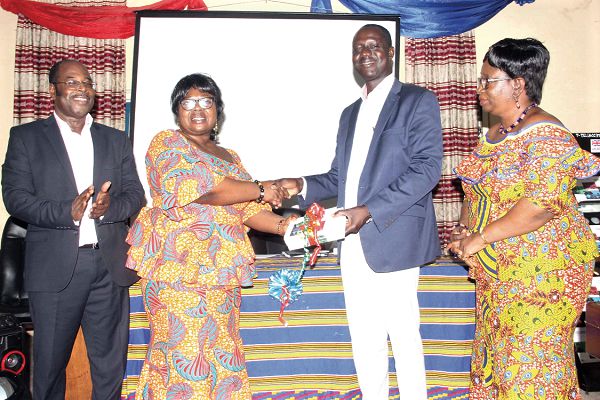
Education Ministry introduces document to guide teachers
Copies of a 56-page document to prepare and guide professional teachers in their work were yesterday handed over to colleges of education at a brief ceremony at the Accra College of Education (ACE).
Known as the National Teachers' Standards for Ghana Guidelines, the document is divided into three main domains, each with its own sub-divisions.
Domains
The domains are the professional values and attitudes which look at professional development and community of practice, professional knowledge and professional practice.
The book was produced by the National Teaching Council (NTC), with the support of the United Kingdom Aid (UKAid), through the Transforming Teacher Education and Learning (T-Tel) programme and the Japanese International Cooperation Agency (JICA).
The standards will form the basis for the curricula for teacher preparation and training, to better prepare teachers to give schoolchildren the best possible education and opportunity for a brighter future.
Ceremony
The Key Advisor for Tutor Professional Development and School Partnership of T-Tel, Professor Jonathan Fletcher, handed over copies of the document, on behalf of the Ministry of Education, to the Executive Secretary of the NTC, Dr Evelyn Owusu Oduro, for onward distribution to all colleges of education across the country.
Dr Oduro, in turn, handed them over to the Adenta and the La Nkwantanang/Madina Municipal Education Director, Ms Frances Mabel Williams, who symbolically handed them over to the Principal of the ACE, Dr Samuel Atintono.
On the content of the document, Dr Oduro said the three domains and aspects encompassed what teachers should value, know and do.
"The domains intersect with one another to develop a teacher competent enough to teach at the end of his/her initial teacher training," she explained.
Assessment
Dr Oduro tasked the universities and the colleges of education to ensure that the design, content and delivery of their pre-service programme allowed student teachers to be successfully assessed against the standards at the end of their period of training.
She said student teachers must be fairly assessed against the standards in accordance with what could be reasonably expected of teachers still learning to teach.
"Opportunities must also be given to those teachers already teaching in schools to apply their practice to the Teachers' Standards over a given period of time.
"These standards have been designed to improve the quality of teachers' delivery and students' performance and should be used as a tool to guide teacher educators, teachers and student teachers to identify what teachers are expected to know, the qualities they need to possess and exhibit," she advised.
Handing over the document, Prof. Fletcher recalled that the idea for teacher standards began 20 years ago and said he was happy that the idea came to fruition yesterday.
Baseline of expectations
Dr Atintono was grateful that the standards represented the first-ever collectively agreed standards to guide teacher preparation and practice in the country.
He said the standards set a clear baseline of expectations for the professional knowledge, practice, conduct, attitude, rights and obligations expected of teachers, “thus the training of our teacher trainees in the college is guided by these standards and they are assessed against the National Teachers’ Standards”.
He expressed appreciation to the government and the T-Tel for the support they were providing for the colleges of education to improve teacher education.
